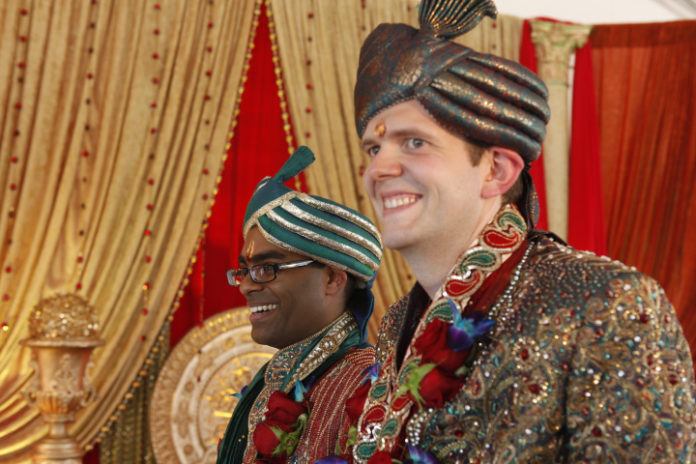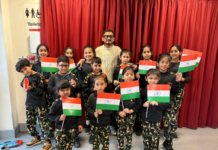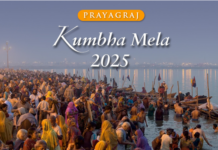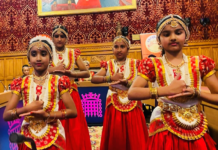Rama Ramanuja Achari, head of the Australian Council of Hindu clergy, recently wrote a blog supporting same-sex unions. His argument: Same-sex attraction is not a personal choice like “Should I have dal makhani or dal fry?”— It is an orientation with which one is born. In the Western context one is said to be “genetically predisposed towards same-sex attraction”; in a Hindu context it is a samskara inherited from one’s previous birth, said the Sydney-based priest.
Clearly, Hindu religion in foreign climes is adapting to changing times, even as India itself appears to be frozen in 1860, clinging to the archaic section 377 of Indian Penal Code that rules sex between homosexuals illegal and against the order of nature.
Achari has conducted three marriages for same-sex couples, and describes them as “sambandham” (relationship) and not a vivaha samskaram (marriage ceremony.) He argues, “From a legal point of view, when two people engage in consensual sex what is the problem? There is no crime if there is no victim. And from a dharma point of view, all beings must be treated with compassion and kindness and allowed freedom to pursue their own self-actualisation. Any opposition to their self-actualisation is Adharma.”
Similar weddings have taken place in South Africa, Canada, UK and the US. Last month, Leicester-based Chanda Vyas conducted the UK’s first inter-faith lesbian wedding. Kalavati Mistry, 48, met her Jewish soulmate Miriam Jefferson more than 20 years ago on a training course in America. They tied the knot in a traditional Hindu ceremony, wearing red-and-white bridal colours. Even on the happy day, Mistry spoke about how she kept her sexuality a secret for years and how difficult it was for her to be an Asian gay woman.
A few of these unions have been blessed by family and friends, like Toronto-based Rishi Agarwal whose parents overcame the initial shock to throw a bash for him and his betrothed. The Agarwals not only researched their son’s “condition” but ended up starting a support group for LGBT people and writing a book on the issue.
ndian laws proscribing homosexuality are based on Christian Victorian laws which have been rejected even by their country of origin—Britain. Dr Arvind Sharma, Birk professor in Comparative Religion at Canada’s McGill University, says that Hinduism does not share the intensity of aversion to homosexuality found in the Abrahamic religions. In his essay on Homosexuality and Hinduism, Sharma stresses that “we should distinguish between Hindu religious attitudes, and Hindu cultural attitudes” because “as a religion, Hinduism is probably more tolerant than it is as a culture.”
“Hinduism is a plural religious tradition so one should not be surprised to find different views in it on such matters,” he says. In fact his essay was quoted by the Hindu American Foundation, one of the first bodies to support Delhi High Court’s 2009 judgment that struck down the validity of section 377. In its policy brief, HAF has held, “One of Hinduism’s core teachings is that every being is divine or a reflection of divine qualities, regardless of one’s outer attributes. Aside from the humanitarian imperative to offer equal treatment to all, the Hindu American Foundation believes that this and other fundamental and ancient Hindu teachings may allow Hindus to more openly embrace LGBT rights and marriage equality.”
Britain’s Hindu Council has also supported gay and lesbian rights after a 2009 legislation made same-sex union legal. Its founding member Anil Bhanot says, “Hinduism doesn’t discriminate against homosexuals but gay marriage is not what it ordains in scripture—it’s always man and woman. However, gay couples can seek spiritual blessings which Hinduism can’t deny.”
In April this year Punjab police female sub-inspector Manjit Singh donned a turban to get married to her love. Though the wedding had the approval of both families it was a quiet affair with many denying knowledge about it later. Not everyone who comes out of the closet finds acceptance. Often culture and society are harsher in their interpretation of religion which leads to suicides or unhappy marriages.
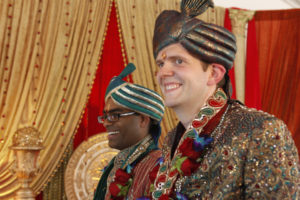

Readers like you, make ESHADOOT work possible. We need your support to deliver quality and positive news about India and Indian diaspora - and to keep it open for everyone. Your support is essential to continue our efforts. Every contribution, however big or small, is so valuable for our future.

